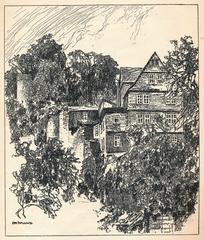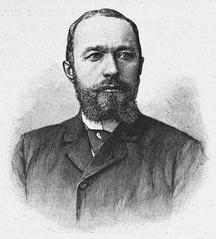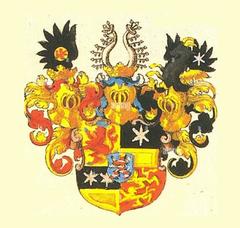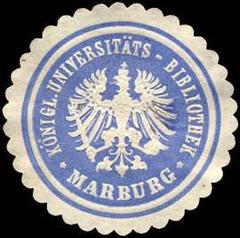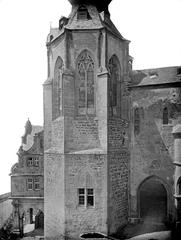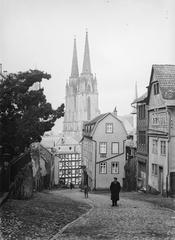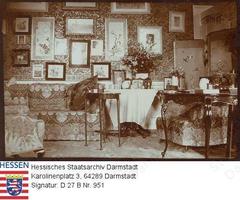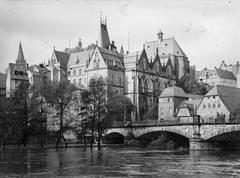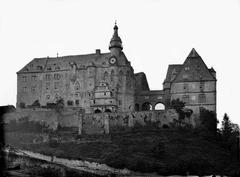Deutsches Adelsarchiv: Visiting Hours, Tickets, and Historical Collections
Date: 14/06/2025
Introduction: Preserving German Nobility in Marburg
The Deutsches Adelsarchiv (German Nobility Archive), centrally located in the historic city of Marburg, is Germany’s premier institution for the preservation, study, and public presentation of the country’s noble heritage. Since its establishment as a registered association in 1961 and its subsequent foundation status in 1994, the archive has functioned as the principal repository for genealogical records, legal documents, manuscripts, portraits, and heraldic art related to German nobility.
More than a mere archive, it is a vibrant research center and public resource, actively maintaining and publishing the authoritative Gothaische Genealogische Handbücher des Adels (GHdA), which trace noble lineages back to the 18th century. The Deutsches Adelsarchiv also champions the modernization of archival practice through digitization, ensuring both the protection and accessibility of these fragile resources for future generations. Its central location in Marburg makes it an ideal starting point for exploring the city’s other historic landmarks, such as Marburg Castle and St. Elizabeth’s Church. For the latest details on opening hours, tickets, and services, visitors should consult the official website (Deutsches Adelsarchiv Official Website) and affiliated cultural platforms (CILANE: German Nobility Associations).
Table of Contents
- Introduction
- History and Evolution of the Deutsches Adelsarchiv
- Collections and Cultural Significance
- Visitor Information
- On-Site Experience and Digitalization
- Exploring Marburg: Nearby Attractions
- FAQs
- Conclusion and Visitor Recommendations
- Sources
History and Evolution of the Deutsches Adelsarchiv
The roots of the Deutsches Adelsarchiv trace back to the post-World War II period, when efforts began to safeguard the genealogical and historical records of Germany’s noble families. Officially founded as a registered association in 1961 and established as a foundation in 1994, the archive has steadily grown into a cornerstone of heritage preservation, now safeguarding over 300 linear meters of archival material and an expansive reference library of about 23,000 volumes.
One of the archive’s distinctive contributions is the continued publication of the Gothaische Genealogische Handbücher des Adels, which have documented the family histories, marriages, and lineages of German nobility since the 18th century (CILANE: German Nobility Associations). The archive’s holdings also reflect the profound social changes following the abolition of nobility’s legal privileges in 1919—an era when noble titles became part of surnames, but noble families continued to play significant social and cultural roles (Wikipedia: German nobility).
Collections and Cultural Significance
Genealogical Holdings
The archive’s collections include:
- Genealogical manuscripts and family trees, some dating back to the 18th century.
- Thousands of family files, original legal documents, correspondence, and historical photographs.
- A vast reference library, with works on nobility, heraldry, and German social history.
The Gothaische Genealogische Handbücher des Adels (GHdA)
The ongoing publication of the GHdA is central to the archive’s mission. These handbooks, organized by category and distinguished by cover color, are rigorously updated and serve as the definitive genealogical resource for both high (Hochadel) and lower nobility (Niederer Adel) (Wikipedia: German nobility). The accuracy of these volumes is ensured through careful verification of submitted family documentation.
Legal and Social Role
Since the Weimar Constitution of 1919, noble privileges were abolished; yet, the archive—operating alongside the Legal Committee of the German Nobility (Adelsrechtsausschuss, ARA)—remains responsible for safeguarding the correct use of noble names, titles, and coats of arms. The archive’s records clarify inheritance, marriage, and lineage questions, supporting both legal and social continuity (CILANE: German Nobility Associations).
Visitor Information
Visiting Hours and Access
The Deutsches Adelsarchiv is open to visitors by prior appointment:
- Monday to Friday: 9:00 AM – 4:00 PM
- Closed: Weekends and public holidays
Appointments ensure personalized research assistance and access to relevant materials. To book, contact the archive via email or phone:
- Email: [email protected]
- Phone: +49 6421 123456
(Deutsches Adelsarchiv Official Website)
Entry Fees and Research Services
- General admission: Free
- Research services and access to certain documents: Fees may apply (details provided upon inquiry)
- Guided tours: Group tours available by arrangement
Accessibility and Facilities
- The archive is fully wheelchair accessible; notify staff of any special requirements when booking.
- Reading rooms offer quiet study spaces and digital workstations.
- High-speed internet and scanning facilities are available for on-site research.
Photography Policy
Photography is permitted only with prior approval. Please request permission when arranging your visit.
On-Site Experience and Digitalization
The archive offers visitors access to both original and digitized documents via digital workstations. Special exhibitions, lectures, and occasional workshops provide further insight into German nobility’s history and heraldry.
Recent digital initiatives are making more materials available online, protecting fragile originals while expanding access for researchers globally. The archive’s modernization efforts include:
- Digitization of genealogical records and heraldic collections
- Online resources for remote research
- Collaboration with universities and cultural institutions
Exploring Marburg: Nearby Historical Attractions
While visiting the Deutsches Adelsarchiv, explore Marburg’s rich cultural landscape:
- Marburg Castle (Landgrafenschloss): Medieval fortress with city views and guided tours
- St. Elizabeth’s Church: A landmark of Gothic architecture
- Old Town (Altstadt): Picturesque cobblestone streets and historic houses
- Philipps-Universität Marburg: One of Germany’s oldest universities
Marburg is well connected by train and public transport, and parking is available near the archive.
Frequently Asked Questions (FAQs)
Q: What are the visiting hours?
A: Monday to Friday, 9:00 AM – 4:00 PM, by prior appointment.
Q: Is there an entry fee?
A: General admission is free. Research services may incur fees.
Q: How do I make an appointment?
A: Contact the archive by email or phone; details above.
Q: Is the archive accessible for wheelchair users?
A: Yes, the building is fully accessible.
Q: Can I take photographs?
A: Only with prior approval—please request permission during booking.
Q: Are guided tours available?
A: Yes, for groups by prior arrangement.
Q: Are materials available in English?
A: Most documents are in German, but staff can assist with basic English-language inquiries.
Conclusion and Visitor Recommendations
The Deutsches Adelsarchiv is an essential guardian of Germany’s aristocratic heritage, offering unparalleled resources for genealogists, historians, and the general public. Its extensive collections—anchored by the authoritative Gothaische Genealogische Handbücher des Adels—and its commitment to modernization through digitization make it both a scholarly hub and a vibrant cultural attraction. Visitors benefit from personalized appointments, accessible facilities, and the opportunity to immerse themselves in Marburg’s historic surroundings.
For the most current information on visiting hours, services, and special events, consult the archive’s official website (Deutsches Adelsarchiv Official Website), and explore related resources for further reading.
Visual Highlights
Sources and Further Reading
- Visiting the Deutsches Adelsarchiv in Marburg: History, Access, and Visitor Information, 2025 (Deutsches Adelsarchiv Official Website)
- Visiting the Deutsches Adelsarchiv in Marburg: History, Access, and Cultural Significance, 2025 (CILANE: German Nobility Associations)
- Visiting the Deutsches Adelsarchiv in Marburg: Your Guide to History, Hours, and Tips, 2025 (Marbuch Verlag)
- Visiting the Deutsches Adelsarchiv in Marburg: Hours, Tickets, and Nearby Historical Sites, 2025 (Stiftungsarchive.de)
- German Nobility, Wikipedia, 2025 (Wikipedia: German nobility)
